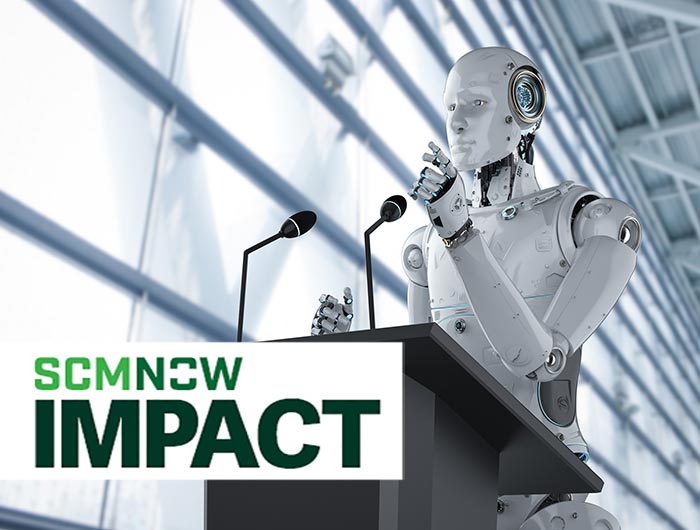After extensive exploration, discussion and literature review, the ASCM research team and a diverse group of volunteers have compiled the Top 10 Supply Chain Trends in 2024. The first three items on this carefully curated list include developments in digitization, big data and analytics, and artificial intelligence. Each of these trends will continue to transform networks through heightened sensing for improved decision-making; enhanced performance and efficiency; and greater resilience, responsiveness and agility.
Of course, these advances can’t be fully realized without proper investment in people, which grabbed the number-four spot on the list. “In 2024, essential investments in people through training and development on the latest tech will create a culture of innovation and encourage employees to share ideas that lead to real supply chain success,” writes ASCM Editor-in-Chief Elizabeth Rennie in her latest blog post. As the world of supply chain tech continues speeding forward, there’s no doubt that the needs of industry professionals must be put first, so training and upskilling will be paramount in the coming year.
ASCM is here to help with pacesetting education to prepare you and your team for everything that’s to come in the New Year. Built on the APICS body of knowledge, our certifications provide critical supply chain knowledge and insights. And certificates explore planning, procurement, resilience, technology and warehousing essentials.
Also among the trends are visibility, traceability and location intelligence, which have the potential to enable supply chain organizations to track the movement of goods and materials through every tier of their networks. "Stakeholders will enjoy greater access to near-real-time data related to orders, inventory, delivery and potential disruption,” Rennie continues. “Supply chain disruption is now the norm, with continued congestion of transportation and logistics infrastructure, geopolitical shifts, natural disasters and extreme weather, raw material shortages, a global pandemic — the list goes on.”
She notes that, instead of addressing issues as they arise, in 2024 organizations will understand even more about preparing for disruption through effective risk management. This involves:
- Identifying and assessing both internal and external risks
- Developing mitigation strategies, such as diversifying suppliers, optimizing inventory and improving visibility
- Testing and rehearsing plans to identify any gaps and make necessary adjustments
- Communicating with stakeholders about risk management
- Continually monitoring and updating plans to ensure they’re up-to-date and effective.
After a historic COP28 climate summit, it’s also noteworthy that ASCM research shows green and circular global networks will continue to be a supply chain priority. As Reuters reported this week, “Representatives from nearly 200 countries agreed ... to begin reducing global consumption of fossil fuels to avert the worst of climate change, signaling the eventual end of the oil age.” The article states that the deal sends a “powerful message” to both investors and policymakers that the world is united in its desire to break with fossil fuels.
“Increasing pressure from consumers, employees, investors, governments and regulators will compel supply chain leaders to carefully consider the sustainability of their future operations,” Rennie notes. “To achieve green and circular supply chains, organizations must ensure change can take root across the end-to-end value chain.”
These and many other key topics were explored in yesterday’s LinkedIn Live, moderated by Matt Talbert, ASCM’s senior manager of research, and featuring Cara Curtland, supply chain data scientist, HP; Lucille Doctor, senior manager of supply chain planning, UScellular; and Armand van Oostrom, senior lecturer, Hague University of Applied Science. Check out the informative session to gain essential strategies for embracing the latest tech, investing in people, and building a resilient and adaptable supply chain in 2024. As always, ASCM is your trusted partner on the journey to supply chain excellence in the New Year and beyond.



